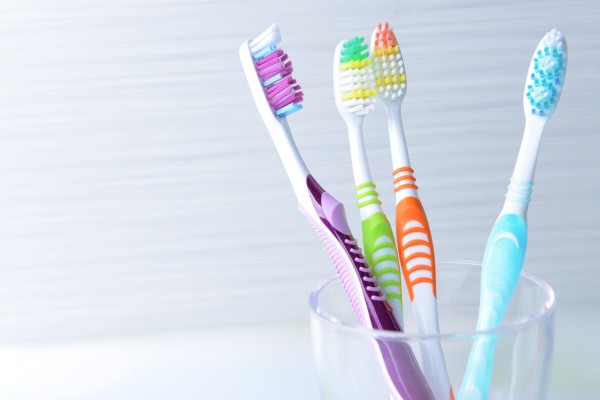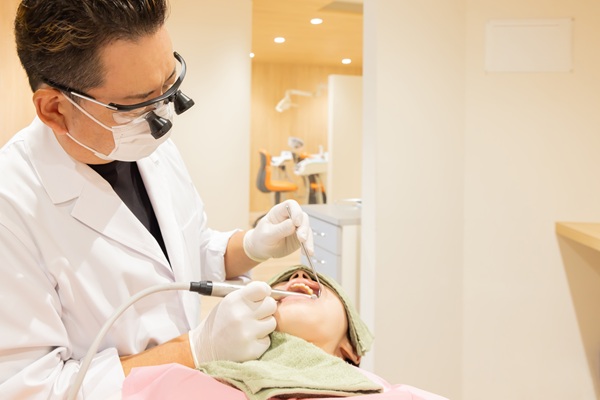Use These Oral Hygiene Tips to Protect Children From Tooth Decay

Brushing your child’s teeth and other oral hygiene habits are necessary for several reasons. The first set of teeth (primary) keeps your child’s jaw straightened. The primary teeth also hold the spaces for adult teeth to come in and help your child learn how to smile, chew and speak properly. Learning good oral hygiene habits at a young age can result in lifelong patterns.
Starting good oral hygiene habits for kids
Many parents wonder when to begin brushing and flossing a child’s teeth. When the child has teeth that are touching, a parent can start flossing between them. Brushing should begin when the child’s teeth first start appearing. There are several different stages of development in children. Knowing the right oral care tips can help parents manage oral hygiene more effectively.
4 to 24 months
Parents should begin gently cleaning their newborn’s gums after any feeding (bottle or breast). This is a good way to prevent tooth decay and get rid of plaque buildup. When the child’s first tooth appears, the parents should brush it with a soft-bristled toothbrush and a small dab of non-fluoridated toothpaste. This should occur twice a day for two minutes. The first dentist appointment should happen around the child’s first birthday.
2 to 4 years
When a child is two or older, parents can encourage them to brush with fluoridated toothpaste. This prevents decay as the teeth continue developing. It is important to supervise a child to make sure proper brushing habits are formed. Children should spend two minutes on the back teeth, where the deep crevices make cavities more likely to form. Parents should also consider the snack options and beverages the child is getting.
5 to 7 years
Children who are five and older will develop permanent molars. Using fluoridated toothpaste is very important at this stage. By now, children should have a routine in place for remembering to brush and floss on a daily basis. Watching what the child consumes is still important as sugary beverages and snacks are more likely to cause cavities.
Dentists can also offer sealants for the child’s molars and premolars. Sealants are thin plastic sheets that cover up the deep crevices found in the chewing teeth. This prevents bacteria and plaque from forming and can reduce the chance of cavities.
8+ years
Once a child begins school, parents will have less of an influence on what the child is eating and drinking throughout the day. Set good examples at home by eating a variety of healthy and nutritious snacks. Children should still be brushing and flossing regularly using a fluoridated toothpaste. There are toothbrushes designed for a mixture of baby teeth and permanent teeth that parents can buy.
Tackle oral hygiene habits head on
As a parent, it is your job to set an example for your child. Make sure that you are following good oral hygiene habits yourself so that your child can learn from you. If you are unsure about anything, you can talk to your dentist about ways to improve oral health — both for you and your child.
Request an appointment here: https://www.yourhuntsvilledentist.com or call René A. Talbot, DDS at (256) 382-6690 for an appointment in our Huntsville office.
Check out what others are saying about our services on Yelp: Read our Yelp reviews.
Recent Posts
Patients often search for root canal treatment when a tooth aches from deep decay, a crack, or inflamed pulp tissue. This therapy removes irritated nerve tissue, disinfects the canal space, and seals the tooth to prevent reinfection. By preserving the natural root, the procedure maintains bite balance and chewing strength. With careful planning, a restored…
Looking for information on periodontic care? Continue reading to learn about situations when a dentist might recommend periodontics. Periodontal disease, commonly known as gum disease, is a serious oral health issue that can result in severe oral infections and tooth loss. Periodontal disease may be contained and handled with the appropriate professional treatment.Gum disease can…
Dental veneers can improve the shape, color, or symmetry of the smile in a way that looks natural. These thin restorations are bonded to the front of the teeth to enhance appearance while maintaining a natural feel. Available in both composite and porcelain materials, veneers are selected based on aesthetic goals, treatment timeline, and lifestyle.Composite…
Choosing the right dental office is essential for maintaining good oral health and ensuring a positive dental experience. When visiting a new dental office, it is important to ask the right questions to ensure the practice meets your specific needs and expectations. Whether you are new to the area or simply seeking a change, asking…


